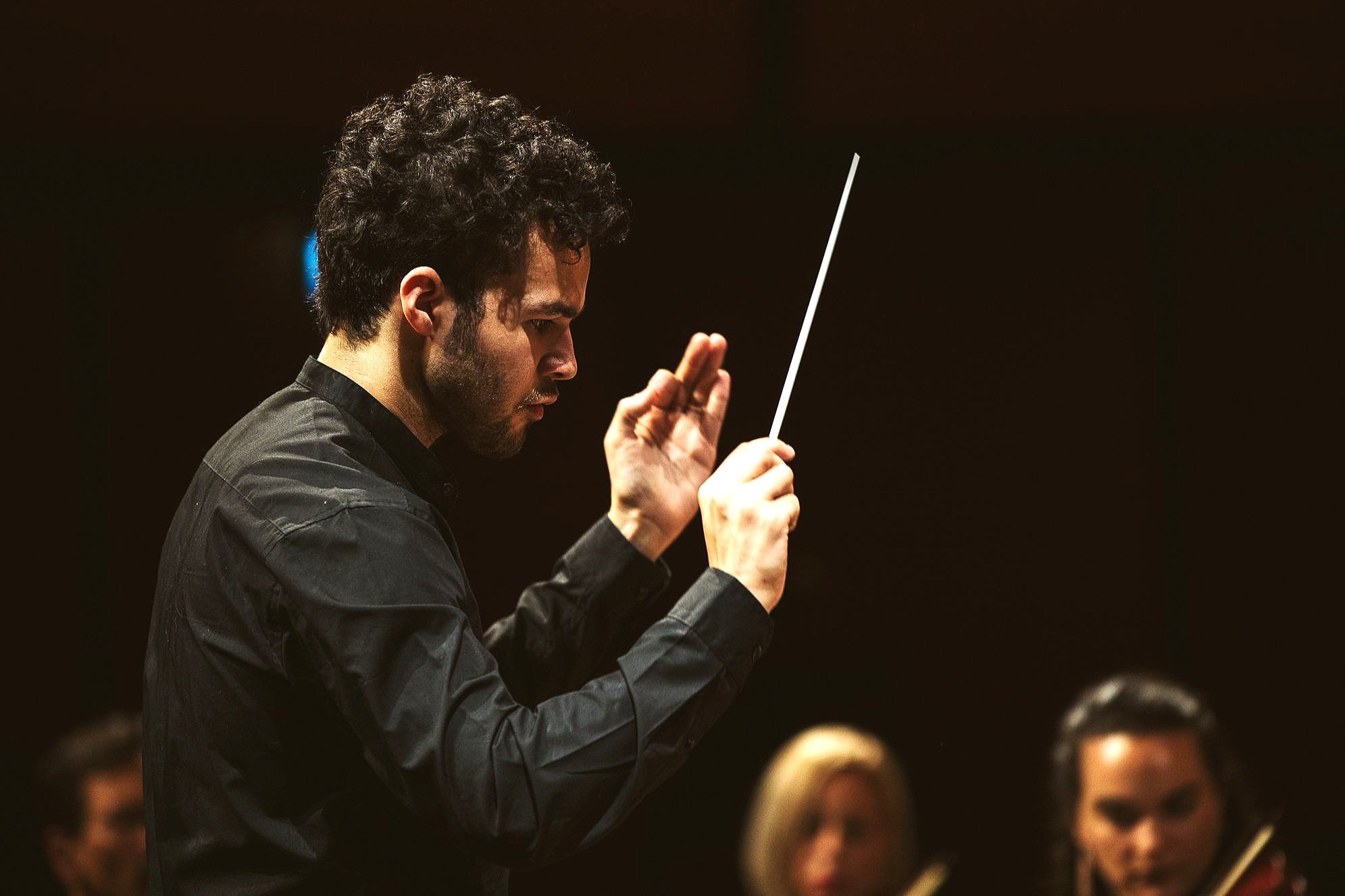Pictured: Venezuelan violinist and conductor, José Ángel Salazar-Marin
“Music shouldn’t just be for the educated; our responsibility as musicians is to find new ways of making it accessible to everyone.”
Orchestras for All (OFA) is delighted to announce that José Ángel Salazar-Marin has been appointed as guest conductor at National Orchestra for All’s forthcoming summer concert.
Titled ‘The Way We See It’, the highly-anticipated recital, which is free to attend, takes place on Friday 29 July at the Albert Hall Conference Centre in Nottingham and celebrates all that the 100-strong ensemble has achieved over the past two years – and with José leading the way, it’s sure to be an afternoon to remember.
The esteemed violinist and international Maestro first rose to fame at the age of 14 after participating in Venezuela’s prestigious El Sistema programme, which seeks to use music education as a vehicle for social change – cultivating an ‘affluence of spirit’ that today brings hope, joy and positive social impact to 400,000 children throughout the country as well as their families and local communities.
Despite growing up in a household with very little exposure to orchestral music, José’s involvement in El Sistema opened new doors of musical opportunity and the talented teenager soon found himself leading between 70 and 80 musicians in the Youth Orchestra of Nueva Esparta – earning him a media reputation as the ‘world’s youngest conductor’.
Since then, José’s career has taken him to new heights and he is currently Artistic Director at El Sistema Greece, where he hopes to inspire other young people who might wish to follow in his footsteps – making him the perfect person to lead the way at National Orchestra for All’s musical extravaganza.
We caught up with José ahead of the concert (watch video above), to find out more about conducting and why breaking down barriers to music-making is so vital…
Who or what inspired you to become a conductor?
“The first conductor I saw was Thomas Clamor – he was in Venezuela to work with a brass ensemble. I saw how happy he was, with all these marvellous gestures and smiles – how all this energy was just flowing around and how this environment was created.
“Apart from the music and its quality, I could feel that everybody was part of something – connected – and I just thought, ‘I want to be part of that’.”
Are you looking forward to working with National Orchestra for All this summer?
“What you do is marvellous. I’m really happy that you are the kind of organisation that is doing so much good for a lot of people. I’m excited and motivated to join you but also, I think this will be a really nice learning experience as well.
Meet National Orchestra for All’s musicians >
“I’ll do the best I can working with all these talented young people but everything that I receive from them will give me a lot of ideas about how to move forward. When I talk to teachers, I say that we’re like superheroes with a belt of different tools. I think that by [working with] Orchestras for All, it will give me some tools that I don’t have in my belt, so I’m really looking forward to it!”
“I think the best conductors are those who are really connected to people,” says the young Maestro.
What is the role of the conductor in terms of supporting the wellbeing of young musicians?
“I think a conductor is a facilitator and motivational coach. You have to bring out the best in young people but at the same time, be sensible enough to recognise what they need. You need to facilitate the process in which they’ll discover what they need and then express it.
“It’s just as important to focus on the artistic quality of what we do and as a musician, I try to pass on the best qualities I can. So yes, we are an educational programme, we are focused on wellbeing and we want young people to grow and develop themselves in a human way but also, we’re giving our best artistry-wise. My mission is to bring these things at the same level and always work on them in parallel.”
Can you share three top tips for aspiring conductors?
“First of all, you have to really love music – kind of become obsessed with it! Read about it, live with it, listen to it, compare it. As a conductor, you become a bit like a researcher – you’re always looking for new ideas and have to renew the ideas that you had because times change and we need to adapt.
“The second thing is that I don’t think the autocratic image of the conductor exists anymore; it’s more about team-playing, being a musician, being part of a group and enabling people to make music or express and discover who they are through music.
“The third thing is to never lose touch with humanity. Sometimes, when you get into the music business you can become too stiff or old-school, so I think the best conductors nowadays are those who are really connected to people – who are gentle, humble and open, always trying to make people feel good.”
José Ángel Salazar-Marin will be joining National Orchestra for All this summer as guest conductor.
What is the future of orchestral music?
“There are many new and interesting things happening – the inclusion of more female composers in the repertoire, the inclusion of more female conductors and musicians, and having an orchestra running programmes for the community. It’s not only about the image of the orchestra wearing a bow-tie and a nice concert hall but also, the image of an orchestra that plays on the street for people or who sits with the audience.
“As an institution, we need to invent new ways to motivate people to come into this world of music. Music isn’t something that should just be for the educated; our responsibility as musicians is to find new ways of making it accessible to everyone.”
Why should others join Orchestras for All’s mission to break down barriers to group music-making?
“Doing something good for others is as good as doing something for yourself – we live in a community. We’re social beings and I think that when others are better, you are also part of something better. The mission of an organisation like Orchestras for All – or of organisations like El Sistema and Sistema Greece where I work – is about bringing art closer to everyone and building a better society.
“The real value of music is watching people grow – creating spaces where there is dialogue, inclusion, no discrimination, respect for feelings and emotions, and where you motivate young people to help each other, listen to each other, be patient and discover new things as a team.
“You can have an orchestra of 300 young people and maybe only three or four will become professional musicians – but that doesn’t matter. What matters is that these experiences and the training will stay with them for the rest of their lives. When they grow up and go into their chosen field, they’ll always remember these values. So, [OFA] is an organisation worth supporting for the betterment of everyone.”
Book free tickets to National Orchestra for All’s summer concert >






